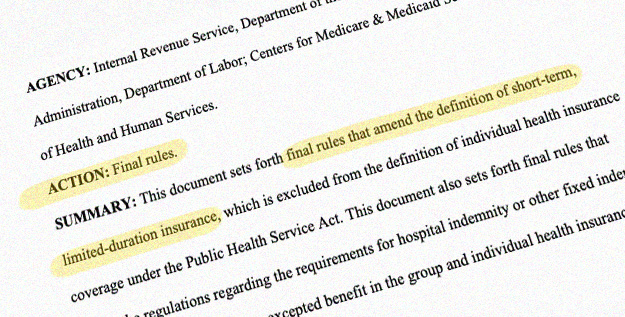
The Faustian bargain of Medicaid and institutional care
Harold: It seems like we’ve made a Faustian bargain, where the way that we kept costs down is to force people to self-select in Medicaid for largely institutional services that they really need. There’s this fear that if we allowed more services in people’s homes, that there would be this woodwork effect among people who could somehow do without these services.
We hope people can get a family member to provide these services without us having to pay … We’re nervous about bringing that whole population into the system and having to pay for it, so we’ve set up this very strong bias towards institutional care so that we’re serving people who really need institutional care.
One human cost of that is to have people in institutions who might otherwise not be there. We also have people living in their homes who are not getting the care that they need so that they can thrive. But they’re not yet so desperate that they need to be in an institution. Every day, many people are facing the consequences of that.
Sam: One of the things we’re doing is to impose real burdens on family members. At the Department of Justice, I worked on many cases about promoting non-institutional community services for people with various kinds of disabilities. I went around the country and met with a lot of family members of people with various kinds of disabilities, who had grown up in their own homes. In earlier times, when someone was born with a developmental disability the doctor would say, “Yeah, send this person to an institution,” but people don’t want to do that now, and that’s a great advance.
We have people with developmental disabilities who grow up in their homes, who are a part of their community. Their parents want them to stay in the community. They want to stay in the community. They have a life that’s in the actual community that we all live in. Current policies place great burdens on parents and family members to provide the services that the state’s not providing. It also puts this great burden of worry on parents, as they age. What’s going to happen when they’re not able to provide assistance to their children anymore because they’re too old, or when they die?
Seeing the best face of American social policy caring for a family member
Harold: You’re describing exactly the circumstances of our family. My in-laws took care of Vincent, my brother in law, every day of his life. They were encouraged to institutionalize him, and chose not to. Eventually my mother in law died suddenly, and then he moved into our home, and he lived with us for a couple of years. My wife left the workforce. Vincent had a number of medical problems that are now, fortunately, much better. Yet Veronica ended up out of the workforce. She’s his advanced-practice nurse, case worker, chauffeur, bottle washer, worrier, everything.
In some ways, we’ve seen the best face of American society and social policy, taking care of Vincent. I must say that in the nine years that I’ve been directly responsible for various things, we have never had a negative interpersonal experience, virtually with anyone. Last year, I took him to Los Angeles on vacation. We go through O’Hare Airport at 7:30 in the morning. We’re very slow, moving through the security checkpoint. There were all these Type A business travelers behind us in line.
Vincent was conspicuous to say the least. He wears necklaces and he’s very ungainly. He didn’t want to take his shoes off. He had this “WTF” reaction to the whole security procedure. Everyone behind us waited very patiently, gave him a smile, and waited for him to move through. There’s been this incredible, positive embrace of people in our society, that our family sees every day.
At the same time, there’s so many holes in the system of care. We do know, mainly from his house mates and his friends and the people that we’ve met in this, how many older parents are not prepared for what’s going to happen to their loved ones. There’s huge waiting lists for services, particularly in Illinois, which has a very troubled Medicaid system. People are very fearful of the future for their loved ones. You also find particular things where the Medicaid system breaks down, like dental care.
Developmental disability is absolutely where the American Welfare system is at its best. If we had a loved one with severe mental illness it would be so much harder, or if he had more complicated medical issues. We see what people go through with housing and other things or if he exhibited behavioral problems.
On Tuesdays, Thursdays and Saturdays I think, “Wow, we have a great country that’s really advanced so much over the past 50 years,” that I see in my own life in such a positive way. Then on Mondays, Wednesdays, Fridays, and Sundays, I think, “Wow, we are so messed up and so failed in our social insurance system to really do the job that needs to be done.”
And today’s Saturday, so I’m feeling pretty good.
Harold Pollack is Helen Ross Professor of Social Service Administration at the University of Chicago. He has written about health policy for the Washington Post, New York Times, New Republic, The Huffington Post and many other publications. His essay, “Lessons from an Emergency Room Nightmare,” was selected for The Best American Medical Writing, 2009.









